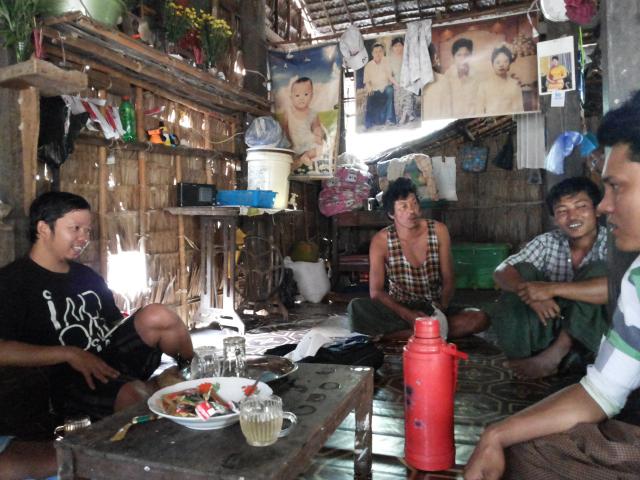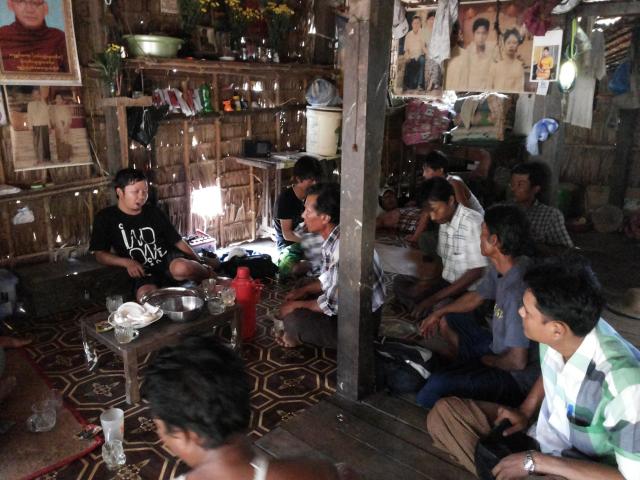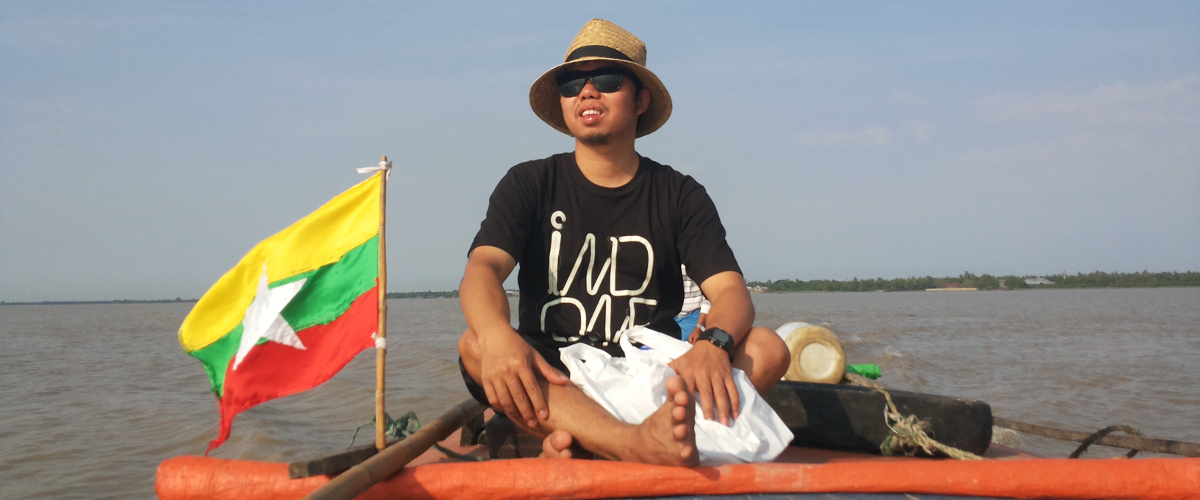At Kanyintabin village, a community nestled on the bank of the vast Pyamalaw River, Jesuit Scholastic Cyril Nay Myo Htet, better known as Phocho, sat down with a group of farmers on a hot December afternoon, a mug of sweetened instant coffee in his hand. This was the time of the year when they harvested the yields of their toil and sweat.
The discussion was mainly about how many farmers would be able to pay the loan installments from the harvest. Since May 2013, Phocho has been working with the Arrupe Resource Centre Myanmar (ARCM), a Jesuit work, to help locals maintain cash flow and free themselves from loan sharks through a microcredit programme. They have also been helping to build rice barns that can serve as shelters during storms.
 In May 2008, these villagers bore the brunt of Cyclone Nargis. More than 120,000 people, mostly in the Irrawaddy Delta, died. Since then the survivors have been trying to pick themselves up with the help of NGOs and governments. Kanyintabin is one of 10 villages in the area that received help from what is now ARCM, following Cyclone Nargis. In the past two years ARCM has been helping the farmers and fishermen back on their feet with various programmes, but recovery and reconstruction have been slow in the delta.
In May 2008, these villagers bore the brunt of Cyclone Nargis. More than 120,000 people, mostly in the Irrawaddy Delta, died. Since then the survivors have been trying to pick themselves up with the help of NGOs and governments. Kanyintabin is one of 10 villages in the area that received help from what is now ARCM, following Cyclone Nargis. In the past two years ARCM has been helping the farmers and fishermen back on their feet with various programmes, but recovery and reconstruction have been slow in the delta.
Sch Phocho never thought he would be a small banker to farmers and fishermen. All he had learnt prior to Regency was spirituality and philosophy, which he studied in Jakarta, Indonesia. Little did he know that he would one day be involved in reconstruction and rehabilitation projects.
“My role model was Father Clay Pareira (an Indonesian missionary), the first Jesuit I met here. He seemed so confident and full of life. I wanted to be like him.” This wish brought him to the candidacy house in Yangon and afterwards the novitiate in Taunggyi, Southern Shan State.
“It has been a steep learning curve for sure because I am learning while doing,” said Sch Phocho. “My joy is seeing the farmers being able to save from the fruits of their labour because it means they do not have to borrow from loan sharks. It feels like my sacrifices have paid off.” His modest demeanor belies the fact that he is now in charge of a development budget upwards of US$100,000 per year.
As a regent doing pastoral work, Sch Phocho spends most of his time away from the Canisius Jesuit community in Yangon where he is based. When not staying with the villagers in the Irrawaddy Ayeyarwady Delta, which can be for a week at a time, he stays in a cottage in the Buddhist monastery in Latputta.
 Sch Phocho works alongside three lay people in this project. Fr C Amal SJ, an experienced sociologist and social worker in charge of ARCM, supervises them from his office in downtown Yangon. Sch Phocho makes the six-hour bus trip to Yangon regularly to do the books and write reports. This is quite a big responsibility for a young scholastic who has just finished the first cycle of studies, but the mission does not have the luxury of abundant manpower. There are only 30 or so Jesuits working in the Jesuit Myanmar mission, 20 of whom are scholastics in various stages.
Sch Phocho works alongside three lay people in this project. Fr C Amal SJ, an experienced sociologist and social worker in charge of ARCM, supervises them from his office in downtown Yangon. Sch Phocho makes the six-hour bus trip to Yangon regularly to do the books and write reports. This is quite a big responsibility for a young scholastic who has just finished the first cycle of studies, but the mission does not have the luxury of abundant manpower. There are only 30 or so Jesuits working in the Jesuit Myanmar mission, 20 of whom are scholastics in various stages.
“I am happy doing the work I am doing now. I see a lot of optimism with the opening of Myanmar but at the same time I have worries,” said Sch Phocho about the new Myanmar.
His cautious outlook reflects the general mood in the country. The opening of Myanmar has generated confidence and doubt, joy and worry, success and failure in equal measures. The fragile nature of its democratisation process is likely to determine not only the fate of the Jesuits in the country but also the people they serve. For now, Sch Phocho chooses to hone his skills and be a prudent moneyman for the farmers and fishermen in the delta.


